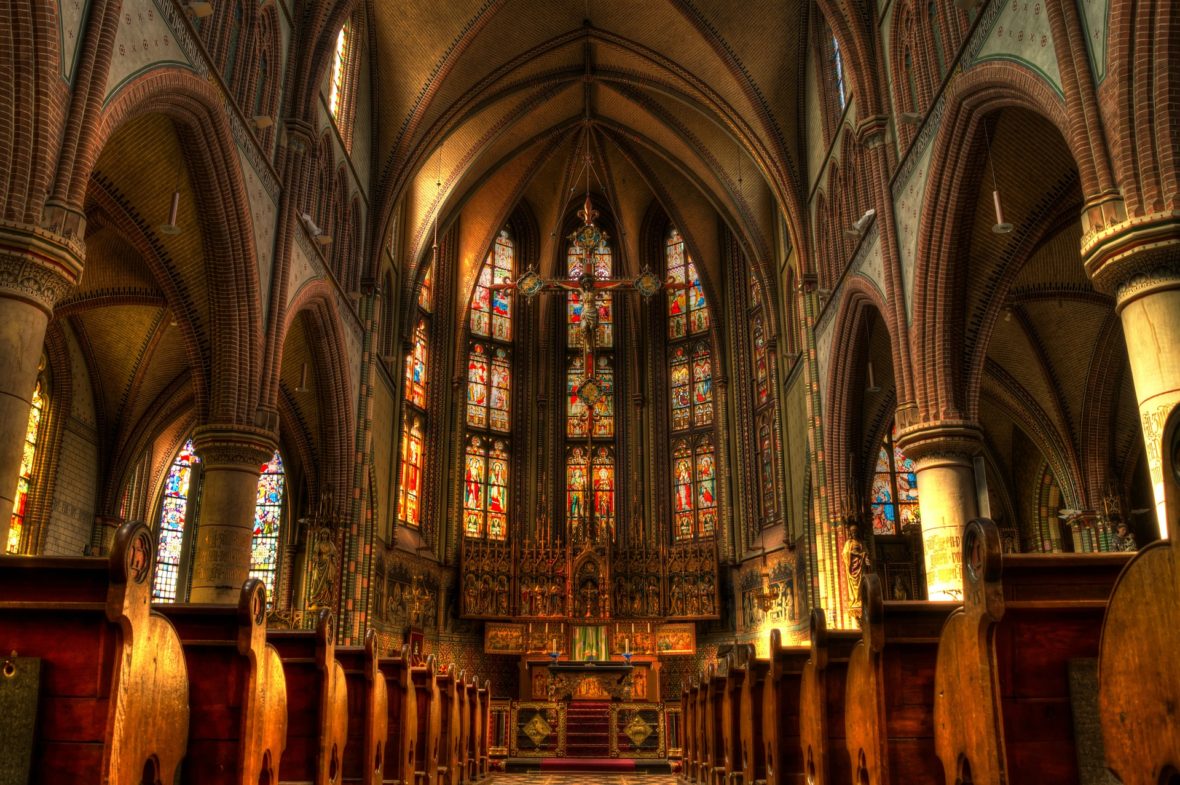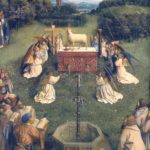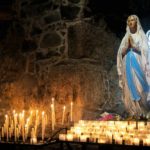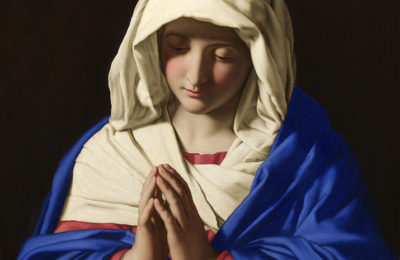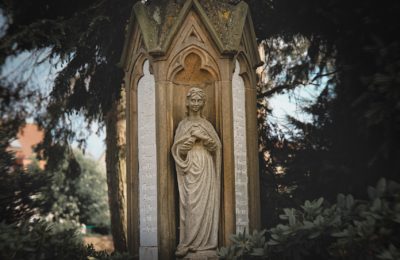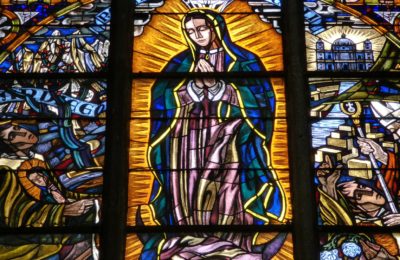~Today, the Roman Catholic Church commemorates Good Friday. Last year, I wrote a piece which delved into the “goodness” of this day, specifically speaking of the Good Shepherd; and I related the day to the traditional description of Our Lady as the Tower of Ivory. I am re-posting it today with a few additions and edits. I hope you are all well. ~SCF
“We left the turquoised church, and headed west under a turquoise sky; having just received Him, we were at peace. It was a night to remember.” ~Memoirs of a Catholic, Holy Thursday entry
Holy Thursday is now over, and it is Good Friday. On this day, the following words of Jesus Christ are quite meaningful:
At that time, Jesus said to the Pharisees: “I am the good shepherd. The good shepherd lays down his life for the sheep. He who is a hired hand and not a shepherd, who does not own the sheep, sees the wolf coming and leaves the sheep and flees, and the wolf snatches them and scatters them. He flees because he is a hired hand and cares nothing for the sheep.” “I am the good shepherd. I know my own and my own know me, just as the Father knows me and I know the Father; and I lay down my life for the sheep. And I have other sheep that are not of this fold. I must bring them also, and they will listen to my voice. So there will be one flock, one shepherd.” ~John 10: 11-16
To have such a good shepherd is what makes this Friday a good day: the day when our Good Shepherd did willingly lay down His life for His sheep. This is the center point of the Good News; hence, why the Cross (with the tabernacle) is the central focus of Catholic churches; and is the central focus of our lives.
Today, we remember the Cross, and are filled with gratitude to our Good Shepherd, Our Savior and King, Jesus Christ. We keep this remembrance in the presence of Our Lady, who stood by Her Holy Son in the darkest hours as the unmovable Tower of Ivory. Let us read the words of Fr. John Henry Newman (b. 1801- d. 1890) on this topic:
Mary is the “Turris Eburnea,” the Ivory Tower A tower is a fabric which rises higher and more conspicuous than other objects in its neighbourhood. Thus, when we say a man “towers” over his fellows, we mean to signify that they look small in comparison of him. This quality of greatness is instanced in the Blessed Virgin. Though she suffered more keen and intimate anguish at our Lord’s Passion and Crucifixion than any of the Apostles by reason of her being His Mother, yet consider how much more noble (emphasis added by SCF) she was amid her deep distress than they were. When our Lord underwent His agony, they slept for sorrow. They could not wrestle with their deep disappointment and despondency; they could not master it; it confused, numbed, and overcame their senses. And soon after, when St. Peter was asked by bystanders whether he was not one of our Lord’s disciples, he denied it. Nor was he alone in this cowardice. The Apostles, one and all, forsook our Lord and fled, though St. John returned. Nay, still further, they even lost faith in Him, and thought all the great expectations which He had raised in them had ended in a failure. How different this even from the brave conduct of St. Mary Magdalen! and still more from that of the Virgin Mother! It is expressly noted of her that she stood by the Cross. She did not grovel in the dust, but stood upright to receive the blows, the stabs, which the long Passion of her Son inflicted upon her every moment. In this magnanimity and generosity in suffering she is, as compared with the Apostles, fitly imaged as a Tower. But towers, it may be said, are huge, rough, heavy, obtrusive, graceless structures, for the purposes of war, not of peace; with nothing of the beautifulness, refinement, and finish which are conspicuous in Mary. It is true: therefore she is called the Tower of Ivory, to suggest to us, by the brightness, purity, and exquisiteness of that material, how transcendent is the loveliness and the gentleness of the Mother of God.
Fr. Newman makes this point:
“It is expressly noted of her that she stood by the Cross. She did not grovel in the dust, but stood upright to receive the blows, the stabs, which the long Passion of her Son inflicted upon her every moment.”
This expresses the truth, as Scripture attests, that Our Lady stood at the Cross. I have viewed art that depicts Our Lady as kneeling at the Crucifixion. Such depictions are simply wrong, and (possibly attempt to) destroy the idea of her, which Catholics have long held, as the Tower of Ivory. However, the truth prevails: our Mother is the Tower of Ivory, and she stood at the Cross. She was, and is, noble in all of her actions. There was never a crack in the ivory tower as G.K. Chesterton noted in his Marian poem, The Towers of Time:
There is never a crack in the ivory tower
Or a hinge to groan in the house of gold
Or a leaf of the rose in the wind to wither
And she grows young as the world grows old.
A Woman clothed with the sun returning
to clothe the sun when the sun is cold. (source)
Blessed Virgin Mary, Tower of Ivory, pray for us.
Cross of Christ, the staff of the Good Shepherd, save us.
May you have a beautiful day.
~SCF

